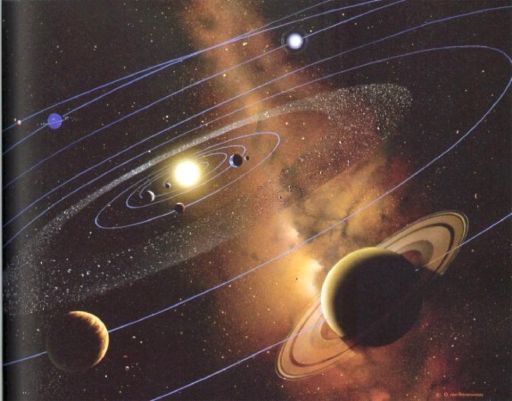Alan Stern • May 21, 2009
Ten Things I Wish We Really Knew In Planetary Science
by Alan Stern
I don't think you work or follow planetary science very long without having some particular, really big picture questions that you really want to know the answer to. And since I have the pen for Emily's blog this week, I thought I'd share my own "top ten" list with you.
In no particular order, my list is this:
- How many worlds harbor life in our solar system?
- How common are Earth mass planets in stellar habitable zones?
- How common are solar systems with architectures like ours, i.e., rocky planets on the inside, giant planets in the middle zone, and dwarf planets and comet reservoirs on the outside?
- What causes Triton's surface to be so young, so long after that dwarf planet's internal engine should have run down?
- How many planets are hiding in the deep outer solar system beyond my own fave planet, Pluto?
- Are there Vulcanoid asteroids orbiting close to the Sun inside Mercury's orbit, or not?
- Were Uranus and Neptune really born in the Jupiter-Saturn region as some smart theorists and modelers now believe?
- Did Mars really ever have oceans -- rather than just lakes, rivers, and rains?
- How many times did life originate on Earth?
Why are surfaces seemingly so heterogeneous within the cometary population, while compositions are so seemingly homogeneous within the cometary population?
- How old are Saturn's rings?
And in fact while I'm at it, one more question comes to mind:
What questions are at the top of your list? Send us an email.
 Alan Stern is an Associate Vice President at the Southwest Research Institute and a consultant to various universities and aerospace firms. In 2007 and 2008 he directed all of NASA's space and Earth science programs as a NASA Associate Administrator. He is a planetary scientist, NASA mission and science instrument PI, and has authored and edited a variety of books on space science and space exploration. His research interests include the origin and architecture of planetary systems, planetary atmospheres, and comets. By not sleeping very much, he also finds time to enjoy raising his three children, and to hike, vacation, and write.
Alan Stern is an Associate Vice President at the Southwest Research Institute and a consultant to various universities and aerospace firms. In 2007 and 2008 he directed all of NASA's space and Earth science programs as a NASA Associate Administrator. He is a planetary scientist, NASA mission and science instrument PI, and has authored and edited a variety of books on space science and space exploration. His research interests include the origin and architecture of planetary systems, planetary atmospheres, and comets. By not sleeping very much, he also finds time to enjoy raising his three children, and to hike, vacation, and write.
Support our core enterprises
Your support powers our mission to explore worlds, find life, and defend Earth. You make all the difference when you make a gift. Give today!
Donate

 Explore Worlds
Explore Worlds Find Life
Find Life Defend Earth
Defend Earth


